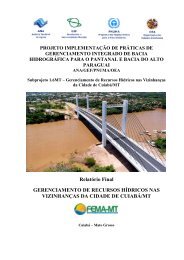Rt€@lll
Rt€@lll
Rt€@lll
You also want an ePaper? Increase the reach of your titles
YUMPU automatically turns print PDFs into web optimized ePapers that Google loves.
- 259<br />
Tte Envirannrantal Areasmcnt component aims to provide a scientific basie for the<br />
implementation of the other components of the Plen. This includes activities to determine the<br />
quality of the marine environrnent and coestel areas through the study of the preduninant<br />
pollutants in the region in all their aspects (sources, coneentration, dispersion, persistence,<br />
ef f ects, transf ormetions).<br />
Tl]e Jirst step in this component is to gtandardize nethodologies in the region and to<br />
promote efficiency in the research institutions, in particular by incorporating activities for<br />
training personnel in every programme.<br />
This component also cells for ecological studies in areas of special interest (mangrove<br />
swampsr coastal lagoons, estuaries, areas for species reproduction, etc.), as a basis for<br />
evaluating the effects of pollutants.<br />
The Envirmmcntel Managarncnt component focuses sr the formulation and ryplication<br />
of programmes to pteventr monitor, reduce and control the pollution of the marine<br />
environment and coestal areas, whatever the pollutants.<br />
This component includes the preparation of standards for the discharge of domestic,<br />
miningr industrial and agricultural wastes as well as of criteria m waler quali[y for different<br />
u8e8.<br />
It likewise includes assistance to the governrnents to establish or strengthen their<br />
institutional capabilities and the co-ordination rnechanisms fon adequate environmental<br />
management, including personnel training for such activities.<br />
The Legal Companent seeks to establish the legal framework for the protection of the<br />
marine environment and coastal areas, as well as to ensure the necessary implementation.<br />
Several activities in this legal component are foreseen: analysis of the legal institutions<br />
provided for in the United Nations Convention m the Law of the Sea that are 6oncerned with<br />
the protection and preservation of Lhe marine environrnent, and their regional application;<br />
promulgation or modification of national legislation for the applicatiori of the'regionai<br />
agreements adopted in Lima in 1981, toqether with the Action Plan and others that mly be<br />
adopted in the future; maintenance of an updated register of national Iegislation related to<br />
the zubjects of the Action Phn; advice Bo the governnents on the application of other<br />
international agreenrents for the protection of tht marine environrnent to which they are<br />
party (e.9.' IMO Cmventions); adoption of complementary protocols such as on pollution of<br />
the marine environment from land sources; pollution as result of the exploration and<br />
exploitation of the Continental Shelf; responsibility and compensation for damages dle to the<br />
pollution of the marine environmentl scientif ic and technical co-qeration; and special<br />
protected areas.<br />
The Inrtitutiond end Financid Arrengements component defines the institutional<br />
structure end the mechanisms for co-ordination of the Action Plan, as well as the means for<br />
its financing. The institutional structure includes:<br />
- Tfn General Authority (Autonidad General, AG) of the Action Plan, with representatives of<br />
the governnents (intergovernmental meetings), responsible for the evaluation of lhe<br />
progre$ of the Action Plan, the approval of the proqrammes and their financing;<br />
- The Conerltativa Group (Grupo Cmsultivo, GC), constituted by experts nominated by the<br />
governncnts to analyee and to give advice on the scientific and technical aspecis of<br />
the Plan;<br />
- The Rcaimal Co-ordinetion Unit (Unidad Coordinadora Regionat, UCR), which is the<br />
General Secretariat of the Permanent Cornmission of tnJ Soulrr pacific, and which<br />
handbs relations with nationel focal points and international organizations;<br />
- The Nationd Focel Pointe (Punto Focal Nacional, pFN), one in each country, responsible for<br />
bhe co-ordinetion of the programmes within the country and for liaison with-the uCR; and<br />
- The Natimal lrutitutime (Irntituciones Nacionales, lN), which are appointed by the<br />
governrEnts [o execute specific technical work under the Action Plan.



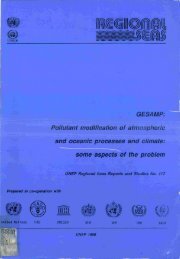
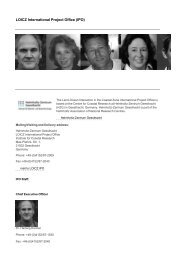
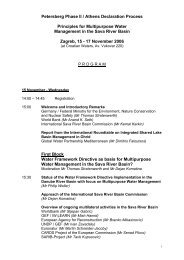
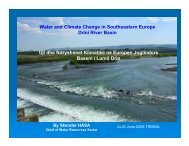
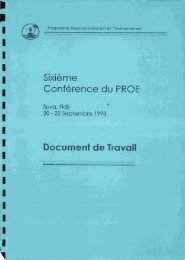
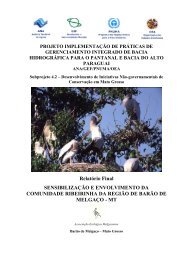
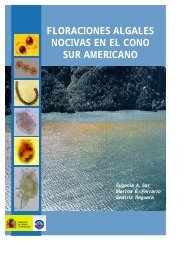
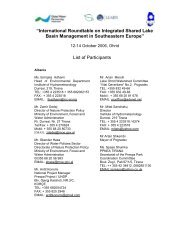

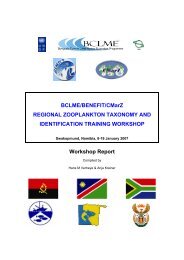
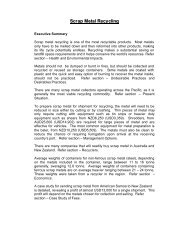
![R]€@lll](https://img.yumpu.com/7594335/1/175x260/reurlll.jpg?quality=85)
